Birth Outcomes and Water (BOW) is a pilot project designed to assess the feasibility of conducting a population-based study to evaluate relationships between adverse birth outcomes and maternal exposure to nitrate and nitrosatable agrichemicals in drinking water. Studies such as this are complex and require a team of experts from many different disciplines.
Investigators
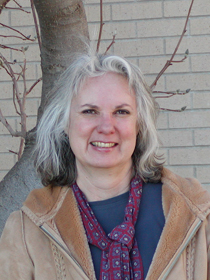
BOW Project Leader, Principal Investigator
Martha Rhoades, PhD
Martha is a University of Nebraska-Lincoln (UNL) research manager in the School of Natural Resources. She has studied nitrosamines for over 15 years. Her doctoral research was an epidemiology study evaluating the association between exposure to atrazine and nitrate in drinking water and risk of developing Non-Hodgkin lymphoma. Dr. Rhoades is leading and coordinating the BOW project.
Why do you think the BOW project is important?
Understanding the relationship between drinking water quality and pregnancy outcomes will help us prevent birth defects and consequently improve quality of life for future generations.
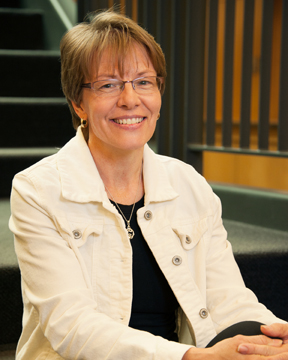
Principal Investigator, 2022-present
Lisa Pytlik Zyllig, PhD
Dr. Pytlik Zillig is a Research Associate Professor and Senior Research Manager at the Public Policy Center at the University of Nebraska. She is leading the participant perception component of the BOW project.
Why do you think the BOW project is important?
The BOW project stands not only to advance research on birth outcomes and water quality, but the study of reasons why people do and don’t participate in such research could improve the quality of participation and thus of future research that requires intensive participation by its subjects.

Past Principal Investigator, 2017-2022
Pat Shea, PhD
Pat Shea is a professor emeritus in the UNL School of Natural Resources, with courtesy appointments in the UNL Department of Agronomy and Horticulture, and the Department of Environmental, Agricultural, and Occupational Health in the University of Nebraska Medical Center (UNMC) College of Public Health. He has over 35 years of research and leadership experience, and provides expertise in applied chemistry and toxicology (agrichemical, xenobiotic, and environmental chemistry and impacts) for the project. Dr. Shea assists Dr. Rhoades in overall management of the BOW project.
Learn more about Pat Shea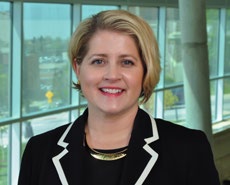
Co-Investigator
Jane Meza, PhD
Jane Meza is a UNMC professor and Co-Director of the Biostatistics Shared Resource for the Fred and Pamela Buffett Cancer Center. Dr. Meza provides biostatistical guidance for the project.
Learn more about Jane Meza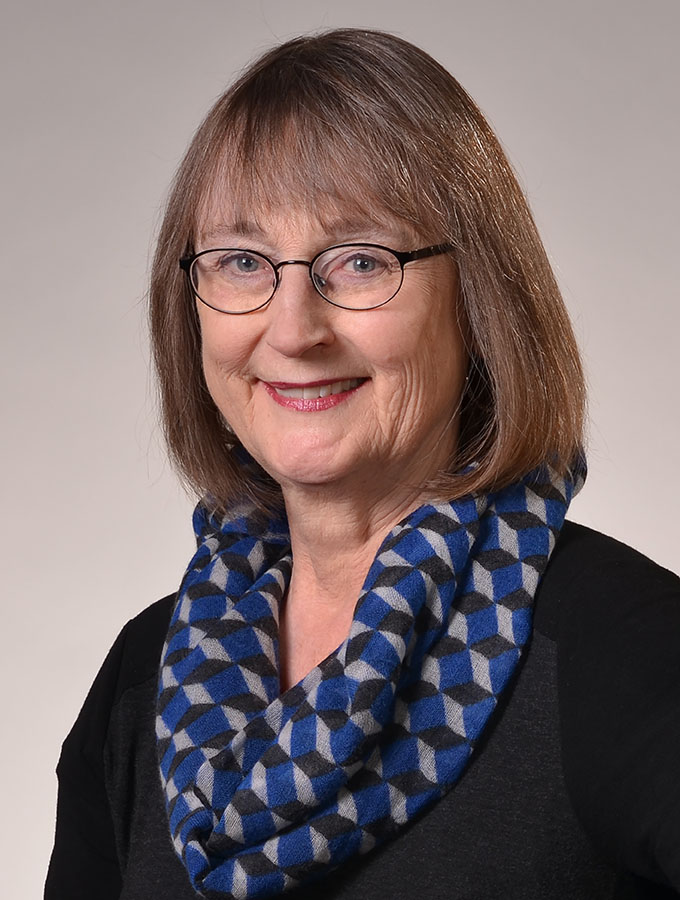
Co-Investigator
Helen Raikes, PhD
Helen Raikes is a professor emeritus of Child, Youth and Family Studies at UNL. She is an early childhood specialist and has been researching intervention programs for vulnerable young children for over 30 years. Dr. Raikes provides guidance for BOW research protocols.
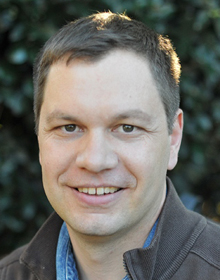
Co-Investigator
Troy Gilmore, PhD
Troy Gilmore is an associate professor and hydrologist in the UNL School of Natural Resources and has experience in reconstructing historical inputs of contaminants to aquifers using groundwater age-dating techniques. Dr. Gilmore oversees water sample collection and analysis for the project.
Why do you think the BOW project is important?
I believe the BOW project is important because it addresses the most critical aspect of water quality, which is human health.

Co-Investigator
Kent Eskridge, PhD
Kent Eskridge, professor of Statistics at UNL, provides guidance on survey development, power analyses, and experimental design. Dr. Eskridge ensures rigorous evaluation of data analyses and valid interpretations of statistical results.
Learn more about Kent EskridgeCollaborators
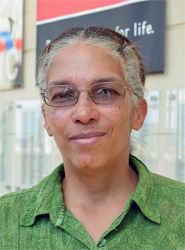
Collaborator
Debora Barnes-Josiah, PhD
Dr. Barnes-Josiah is a retired epidemiologist with over 30 years of experience in maternal and child health. She is the primary epidemiologist for the BOW project.
Why do you think the BOW project is important?
Children are precious. Understanding what is and isn't harmful to their health and well-being are critical public health functions.

Collaborator
Les Howard
Les Howard is a cartographer in the UNL Conservation and Survey Division. He provides GIS support to map subject addresses and works with database staff for spatial variability analysis of prior exposure for private well users.
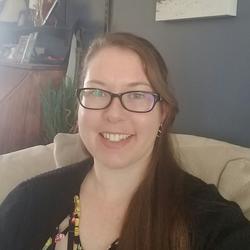
Collaborator
Amanda Flynn
Amanda is a physical scientist at the United States Geological Survey (USGS) Nebraska Water Science Center. She has been involved with many aspects of the groundwater program within the center. Ms. Flynn compiles and analyzes Nebraska groundwater data and assists in sample collection.
Learn more about Amanda Flynn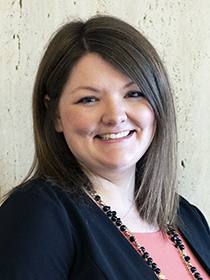
Collaborator
Abbey Snyder
Abbey is a web and graphic designer at the University of Nebraska-Lincoln. She is designing the BOW project website.
Learn more about Abigail SnyderConsultants

Consultant
Jennifer Sanmann

Consultant
Shelley Smith, PhD
Dr. Smith is a professor emeritus of Neurological Sciences and of pediatrics in the UNMC College of Medicine. She is a board certified medical geneticist and is assisting with assessment of potential gene-environment interactions for the BOW project. Dr. Smith works closely with the UNMC DNA Microarray and Sequencing Core Facilities and will facilitate genotyping analysis.
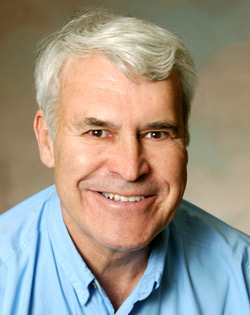
Consultant
Roy Spalding, PhD
Roy is emeritus professor in the UNL Department of Agronomy and Horticulture. Dr. Spalding has expertise in nonpoint agrichemical contamination of groundwater and provides advice for extrapolating water data for exposure estimates.
Why do you think the BOW project is important?
The project should provide valuable information on human health impacts of drinking water contaminated with agricultural chemicals.

Past Consultant
Thomas Rosenquist, PhD
Dr. Rosenquist was emeritus professor in the UNMC Department of Developmental Biology. He was a recognized expert in classifying and characterizing developmental defects.
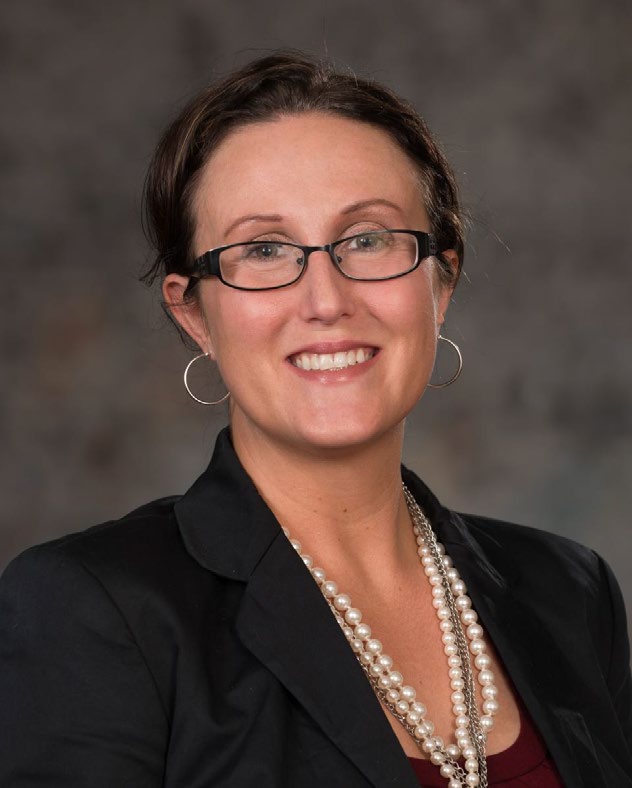
Past Consultant
Lindsey Witt-Swanson
Lindsey was the Assistant Director of the Bureau of Sociological Research (BOSR). She oversaw survey development and data collection.
Students
The Birth Outcomes and Water project provides opportunities for students to gain research experience. The investigators thank the students for their significant contribution to the BOW project.
Current Student, 2023-present
Augustine Kena Adjei
Kena is a PhD Statistics student at UNL. He is applying his skills to evaluate linkages between BOW participants’ exposure to agricultural chemicals in drinking water and risk for birth defects.
Current Student, 2023-present
Elizabeth Struwe
Elizabeth is a UNL undergraduate student majoring in Biochemistry/Community Health and Wellness. Her UCARE project and Honors thesis focuses on the relationship between birth defect risk and exposure to nitrate in drinking water and use of nitrosatable medications.
Current Student, 2022-present
Grace VanDeSteeg
Grace helps with BOW patient recruitment, water sampling and water/saliva data managemen. She completed her Biochemistry studies and is working toward a Masters of Public Health degree through George Washington University
Past Student, 2020-2023
Abigail Stevens
Abigail conducted BOW patient recruitment for water samples. She was an undergraduate student at the University of Nebraska-Lincoln studying Biology and English. Abby completed a UCARE project evaluating chromosomal abnormalities in t(14:18)-positive lymphoma participants of the Nebraska Lymphoma Study Group.
Past Student, 2022-2023
Carolyn Billings
Carolyn assisted with water sampling and water/saliva data management. She studied Forensic Science at the University of Nebraska-Lincoln. Her UCARE project and Honors thesis addressed extraction and analytical methods to determine fate and transport of N-nitrosoatrazine, atrazine and atrazine metabolites in animal tissue.
Past Student, 2021-2022
Alyssa Russum
Alyssa assisted with BOW patient recruitment and water/saliva data entry and management. She is an undergraduate student at the University of Nebraska-Lincoln studying Biochemistry and completed a UCARE project addressing the research needs related to water quality linkages with pediatric cancer.
Past Student, 2019-2022
Kaili Jorgens
Kaili was an undergraduate UNL student studying biology. She examined preliminary data to ID the Motivators and Barriers for participation of the BOW pilot study.
Past Student, 2019-2021
Ashley Thyes
Ashley assisted with data handling and analysis and website development. She completed a UCARE project and was an undergraduate UNL student studying actuarial science and finance.
Past Student, 2018-2020
Moses New-Aaron
Moses was a PhD student in the Department of Environmental, Agricultural and Occupational Health at UNMC. He engaged in research conducted by Dr. Rhoades and assisted in BOW questionnaire construction, data handling, and data analysis.
Past Student, 2018
Jessyka Johnson
Jesskya assisted with BOW packet construction, website development, data handling, and analysis. She received her Master of Public Health from the University of Nebraska Medical Center.
Past Student, 2018-2020
Emily Swanda
Emily assisted with BOW packet construction, data handling, and analysis. She graduated from UNL with a Bachelor of Science degree in Microbiology.
Past Student, 2018
Courtney Dehm
Courtney contributed to the development of the BOW Questionairre. She earned her Bachelor’s degree in Nutrition from UNL.
